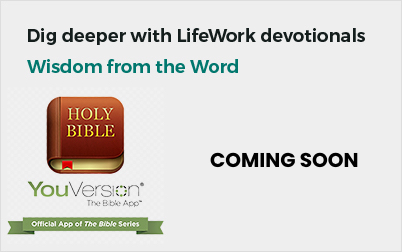No one would argue that credibility is not vital to success in the business world, as well as in any other honourable pursuit of our lives. I say “honourable” because I imagine that in a dishonourable venture, credibility may not weigh very heavily.
Success demands credibility, and credibility demands first of all that a person can be trusted. A person who cannot be trusted will find it impossible to achieve the credibility that is so vital to success. Credibility is only awarded to those whose word can be relied on, who will do what they say, who deliver on their promises, who represent the facts of a situation faithfully and don’t shade the truth. Career advancement, business growth, healthy marriages, lasting friendships, etc. are all built on credibility.
But credibility demands other things as well. John Maxwell, a highly respected pastor, author, and motivational speaker, says this about credibility:
To gain credibility, you must consistently demonstrate three things: Initiative: You have to get up to go up. Sacrifice: You have to give up to go up. Maturity: You have to grow up to go up. If you show the way, people will want to follow you. The higher you go, the greater the number of people who will be willing to travel with you.
Maxwell is talking about the things that invite respect as well as trust. People have high regard for those who are willing to take the first step to get things done, who will accept the costs and sacrifices necessary to achieve a goal, and who can set aside childish pettiness, stubbornness, and self-centredness. Trustworthiness, initiative, sacrifice, and maturity: remember these things, apply them consistently, and watch your career, business, marriage, or other endeavour advance in direct proportion to your resulting credibility.
So how do we test our personal credibility? Here’s a sure-fire test that will reveal where one stands on the credibility scale. To trust the result, you have to be brutally honest with yourself in answering the following few questions. If you are married, ask or involve your spouse; otherwise, get a close friend to give input.
- Do I take what I say, even such a small thing as “I’ll meet you at ten” as a commitment, the kind I will keep short of an earthquake, or is it a loosy-goosy sort of thing where I may arrive at 10:15 or later or not at all?
- Am I a “handshake” kind of person, the kind who would buy a car on a handshake? Or when push came to shove, would I back out, saying, “Well, I didn’t sign for it!”
- Do I trust my own promise, and would I be deeply disappointed in myself if I broke it?
- Is my Yes a Yes, or is it really a Maybe? When I say Yes, am I determined to follow through?
- Do other people trust me to deliver on my promises, and not to come back with reasons/excuses instead?
- Do I by and large trust people, or is my attitude that “You can’t trust anybody”?
Why this last question? Because we tend to see the world as we ourselves are. Not that we should be naïve; but if we generally expect trustworthiness from others, we are more likely to get it, and also to give it. Ultimately, our trust must be in God, whose credibility is total. He is the one who enables us to live in a way that invites others to trust us.
Trustworthiness, Initiative, Sacrifice, and Maturity—which add up to credibility—are assets no person or organization can afford to lose or do without. They are also traits that characterize the person who trusts in God.
Trust in the Lord with all your heart; do not depend on your own understanding. Seek his will in all you do, and he will show you which path to take. —Proverbs 3:5-6



